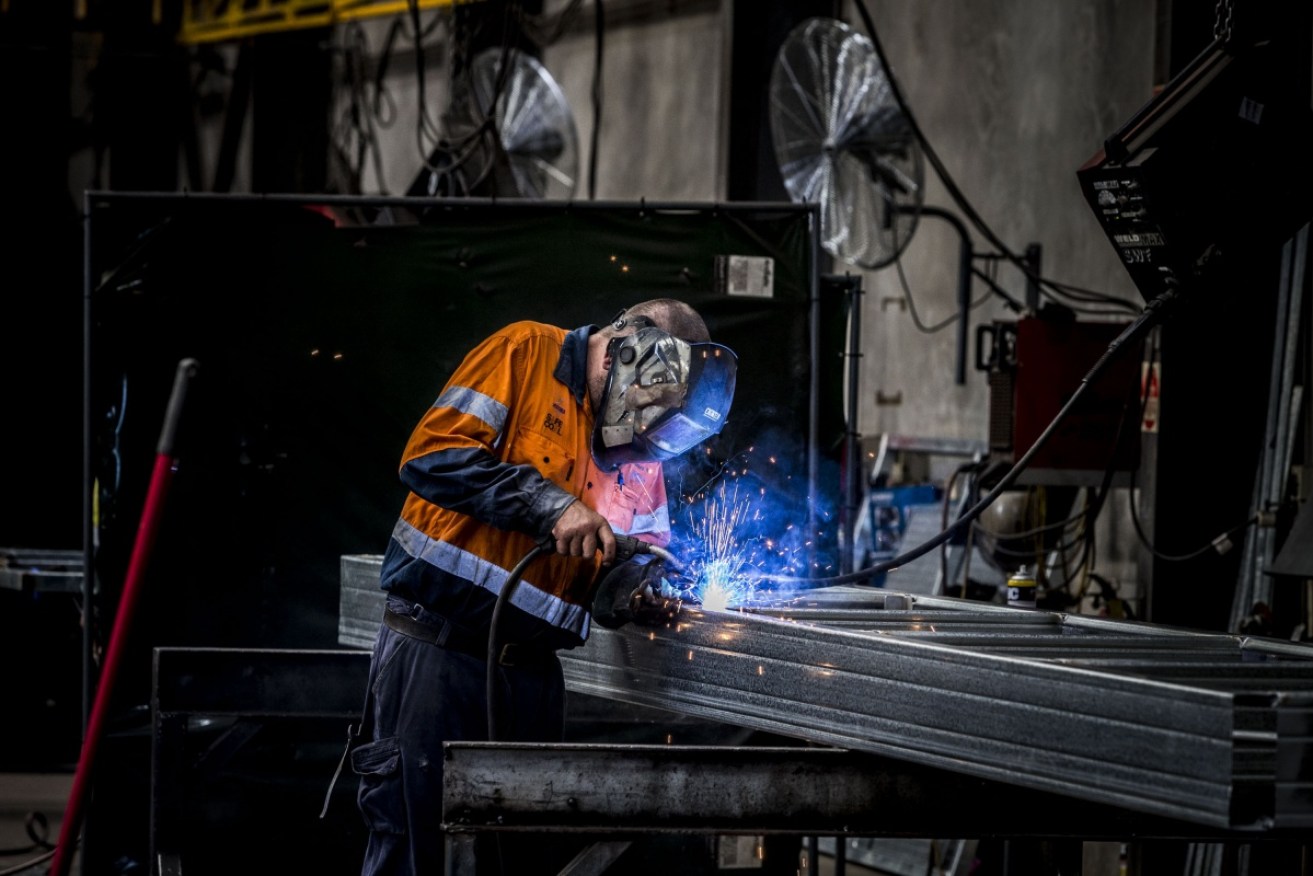Free cash for 25-year-olds: ‘Our rigged economy needs a bold reimagining’

'Australia needs nothing less than re-industrialisation.' Photo: AAP
A senior union leader has called for radical reforms to help young Australians and regional towns, including cash for 25-year-olds and low-interest loans for manufacturing.
Tim Ayres, NSW Secretary of the Australian Manufacturing Workers Union, warned on Wednesday night of growing discontent among those who feel the political and economic system is “rigged against them”.
The speech, given to the Fabian Society in Sydney, mirrored much of the rhetoric of Bernie Sanders and Donald Trump during the recent US election.
Mr Ayres pointed to rising support for Pauline Hanson’s One Nation in traditionally Labor-voting regions such as the Hunter Valley in NSW, where youth unemployment is the second-highest in the country and high-wage manufacturing jobs are disappearing.
“Inequality, the denial of people’s aspirations for a decent life is degrading, alienating and condemns some Australians to a life of desperation unimaginable to the professional middle class,” he said.
To address rising inequality and unwind the “recession” in regional Australia, Mr Ayres advocated a “bold re-imagining” of the economy on the scale of former Labor prime minister Ben Chifley’s post-World War II reconstruction.
Specifically, the economy should be re-industrialised in order to realise full employment in outer suburbs and regional areas, he said.
This would be achieved by forcing the Reserve Bank to target employment, not just inflation, as a monetary policy objective, as well as by the government providing low-interest loans for investment in manufacturing jobs.
“Our manufacturing sector has been starved of investment for decades, and it is time to put our money where our mouth is. It won’t be popular amongst the bean counters, but that’s the point really.”
Mr Ayres also advocated a 35 per cent tax on estates over $10 million to fund a cash grant for every Australian on their 25th birthday.
“A universal inheritance would give millions of young people a future: they can put it to a house, they can start their own business, they can pay off their university fees.”
The counter-point
Professor Tony Makin, an economist at Griffith University and outspoken critic of the Rudd government’s 2009 stimulus package, rejected several of the union leader’s proposals on the basis they would harm the economy.

Professor Tony Makin is open to an inheritance tax, but criticised the other proposals. Photo: YouTube
He dismissed the need for including employment as a monetary policy objective for the Reserve Bank, as it is already “implicit”.
“During the global financial crisis, the Reserve Bank acted to lower interest rates very sharply and that was out of concern the economy was going to slump. They put the inflation objective aside and in part it was to bolster employment.”
Professor Makin also criticised the proposal of low-interest loans for manufacturing as a “picking winners” strategy that has an “unsuccessful history” and “doesn’t pay off in the end” because it diverts resources from potentially more productive sectors.
But he agreed an inheritance tax should be debated, although he noted that ‘hypothecated taxes’ (taxes imposed for a particular expenditure purpose) are not optimal, according to the academic literature.
“The issue we have now is growing public debt and continuous budget deficits, so if you wanted to raise revenue you should be looking to address those problems first, not looking at ways of immediately spending any revenue you get.”








